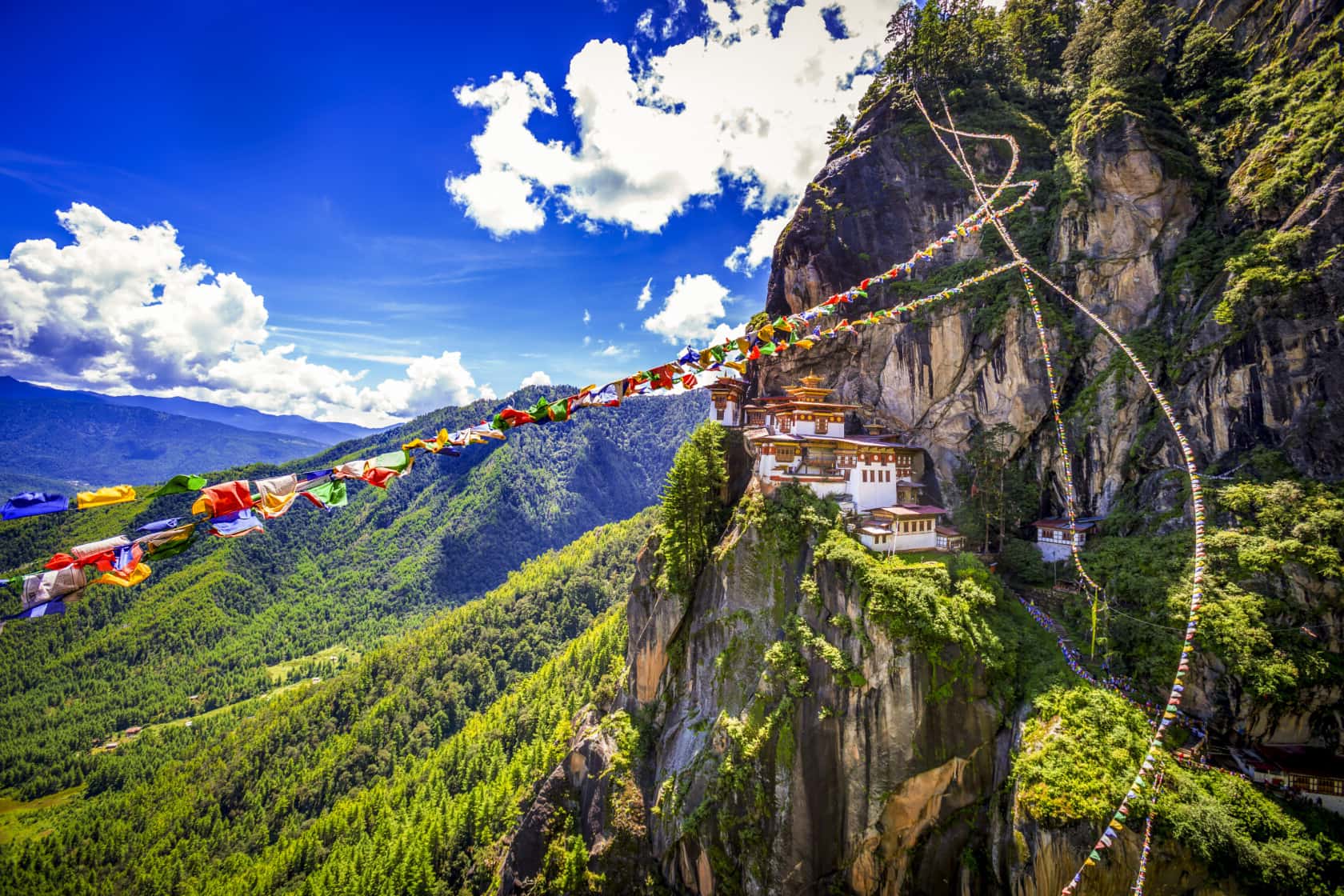
Bhutan, a small kingdom nestled in the Himalayas, often intrigues travelers and culture enthusiasts alike. Known for its stunning landscapes, rich traditions, and unique approach to measuring prosperity through Gross National Happiness, Bhutan offers a wealth of fascinating facts. Did you know that Bhutan is the only country in the world that absorbs more carbon than it emits? Bhutan's commitment to environmental conservation is unparalleled. Additionally, the country has a unique policy of maintaining at least 60% forest cover at all times. Curious about its culture? Bhutanese people wear traditional attire daily, and their architecture remains true to ancient designs. Bhutan is a land where ancient traditions and modern values coexist harmoniously, making it a truly unique destination.
Key Takeaways:
- Bhutan, the "Land of the Thunder Dragon," is a unique country in the Eastern Himalayas with stunning landscapes, rich biodiversity, and a deep-rooted culture that values happiness over GDP.
- With its commitment to environmental conservation, unique approach to measuring success through Gross National Happiness, and a blend of tradition and modernity, Bhutan stands out as a truly exceptional and inspiring nation.
Bhutan's Unique Geography
Nestled in the Eastern Himalayas, Bhutan is a landlocked country known for its stunning landscapes and rich biodiversity. Let's explore some fascinating facts about this unique nation.
- Bhutan is often called the "Land of the Thunder Dragon" due to its fierce storms that roll in from the Himalayas.
- The country is home to the world's highest unclimbed peak, Gangkhar Puensum, standing at 7,570 meters.
- Bhutan's landscape ranges from subtropical plains in the south to sub-alpine Himalayan heights in the north.
Cultural Richness and Traditions
Bhutan's culture is deeply rooted in its history and traditions, which are preserved and celebrated by its people.
- The national dress for men is called "Gho," and for women, it's "Kira."
- Archery is the national sport, and competitions are a significant part of Bhutanese festivals.
- The country celebrates "Tshechu," a religious festival with masked dances and cultural performances.
Environmental Conservation
Bhutan is a global leader in environmental conservation, with policies that prioritize sustainability and ecological balance.
- Bhutan is the only carbon-negative country in the world, meaning it absorbs more CO2 than it emits.
- The constitution mandates that at least 60% of the country must remain forested.
- Plastic bags have been banned since 1999 to reduce pollution.
Gross National Happiness
Bhutan measures its success not by GDP but by Gross National Happiness (GNH), a unique approach to development.
- GNH includes nine domains: psychological well-being, health, education, time use, cultural diversity, good governance, community vitality, ecological diversity, and living standards.
- The concept of GNH was introduced by the fourth King, Jigme Singye Wangchuck, in the 1970s.
- Bhutan conducts regular GNH surveys to assess the well-being of its citizens.
Spiritual and Religious Significance
Buddhism plays a central role in Bhutanese life, influencing its culture, traditions, and daily practices.
- The majority of Bhutanese people practice Vajrayana Buddhism.
- The iconic Paro Taktsang, also known as the Tiger's Nest Monastery, is a sacred site perched on a cliffside.
- Monasteries and dzongs (fortresses) are integral to Bhutan's spiritual and administrative life.
Modern Developments and Innovations
While preserving its traditions, Bhutan is also embracing modernity and innovation in various fields.
- Television and the internet were introduced only in 1999, making Bhutan one of the last countries to adopt these technologies.
- The country has a unique approach to tourism, focusing on "high value, low impact" to preserve its culture and environment.
- Bhutan's capital, Thimphu, is the only capital city in the world without traffic lights; instead, traffic is managed by policemen.
Wildlife and Biodiversity
Bhutan's diverse ecosystems support a wide range of flora and fauna, some of which are rare and endangered.
- The country is home to the elusive snow leopard, red panda, and Bengal tiger.
- Bhutan has over 770 species of birds, making it a paradise for bird watchers.
Bhutan's Unique Charm
Bhutan's charm lies in its rich culture, stunning landscapes, and unique traditions. This small Himalayan kingdom has managed to preserve its heritage while embracing modernity in a balanced way. From the mystical monasteries to the vibrant festivals, every aspect of Bhutan offers a glimpse into a world where happiness and well-being take precedence over material wealth.
The country's commitment to Gross National Happiness over GDP is a testament to its progressive yet traditional approach. Bhutan's biodiversity, with its lush forests and rare wildlife, adds another layer to its allure. Whether you're drawn to the majestic peaks or the serene valleys, Bhutan promises an experience that's both enriching and enlightening.
So, if you're looking for a destination that offers more than just scenic beauty, Bhutan should be at the top of your list. Its unique blend of tradition and modernity makes it a place like no other.
Frequently Asked Questions
Was this page helpful?
Our commitment to delivering trustworthy and engaging content is at the heart of what we do. Each fact on our site is contributed by real users like you, bringing a wealth of diverse insights and information. To ensure the highest standards of accuracy and reliability, our dedicated editors meticulously review each submission. This process guarantees that the facts we share are not only fascinating but also credible. Trust in our commitment to quality and authenticity as you explore and learn with us.


